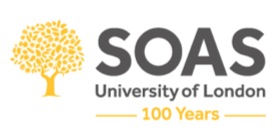Time: 13:00-15:00 (UK Time), Wednesday, 4 October 2023
Presenters: Professor Victor Murinde, SOAS University of London and Dr. Athina Petropoulou, University of Sussex
Chair: Professor Victor Murinde, SOAS University of London
Abstract
How has Africa been riding the waves, if we take a 25-year timeline of external shocks on African economies? Examples include the Asian financial crisis in 1997, the global financial crisis in 2007, the food and oil crisis in 2008, the oil price collapse in 2014, the recent COVID-19 pandemic, and the geo-politics of the Russia-Ukraine war. In this paper, we use a rich data set to study the timeline, the DNA, and the macroeconomic implications of the shocks on Africa’s economies. We invoke the theoretical underpinnings of central banking to consider the role of central banks in Africa in enhancing the resilience of their economies in the face of these shocks. We argue that central banks, working with fiscal authorities, have a crucial role in reducing the virility of the shocks. We propose that the way forward for African central banks, beyond macroprudential regulations, is towards re-designing the architecture for financial resilience in African economies. We identify six building blocks: leveraging on Pan-African banks as a strategic integral component of the architecture for financial resilience; building peer-to-peer trust through the interbank market; the role of central bank independence to deal with limited fiscal space in re-designing the architecture for financial resilience; invoking the FinTech revolution in migrating to digital platforms, including central bank digital currencies (CBDC); the emerging role of African central banks in climate risk mitigation; and the regional monetary integration choice.
Presenters
Professor Victor Murinde is the AXA Chair in Global Finance (endowed by the AXA Research Fund) and is the founding Director of the Research Centre for Global Finance, at SOAS University of London. Previously, he was Professor of Development Finance at the University of Birmingham (1999-2010); he was also the founding Director of the African Development Institute at the African Development Bank (2011-2014). His ongoing funded research projects cover bank regulation, FinTech for financial inclusion, climate risk finance, and application of artificial intelligence and machine learning methods to banks and financial markets. He has contributed over 120 research papers and 15 books to the economics, banking and finance literature. For his research, networking and impact, he was awarded the Doctoris Honoris Causa by Tallinn University of Technology (TalTech) on 17 September 2003, with the dictum, “in recognition of your merits in Financial Economics and Banking and promotion of British-Estonian collaboration in research”. His research resonates with policy and practice, as endorsed in research impact assessments: According to the UK Research Excellence Framework 2014 (REF2014), his research on “Shaping Bank Regulatory Reforms in Africa” was recognized for exceptional impact; also, in the recent UK Research Excellence Framework 2021 (REF2021), his joint research (with Ulrich Volz and Gerhard Kling) on “Climate Risk and Cost of Capital for the Vulnerable (V20) Countries” was identified for outstanding impact. He is Chair of Group C (Finance & Resource Mobilisation) of the Africa Economic Research Consortium (AERC). He was inducted by premier learned societies: As a Fellow of the Econometric Society; a Fellow of the Academy of Social Sciences; and a Fellow of Royal Society of Arts.
Dr. Athina Petropoulou is a Lecturer in Finance at the University of Sussex Business School. Before joining the University of Sussex in August 2023, Athina held a post-doctoral Research Fellow position under the AXA Chair in Global Finance in the Centre for Global Finance at SOAS University of London. She also worked as a teaching fellow at the University of Bath. Her core research interests lie in the areas of banking, where she investigates credit risk, liquidity risk, efficiency and competition across alternative banking models (e.g., community banks). Her other research interests also include finance and financial econometrics, and she has been involved in research projects at the University of Bath and the University of Kent. Her research work has been published in International Review of Financial Analysis, Journal of International Financial Markets, Institutions and Money and presented at leading international academic conferences such as IFABS and INFINITI among others.

